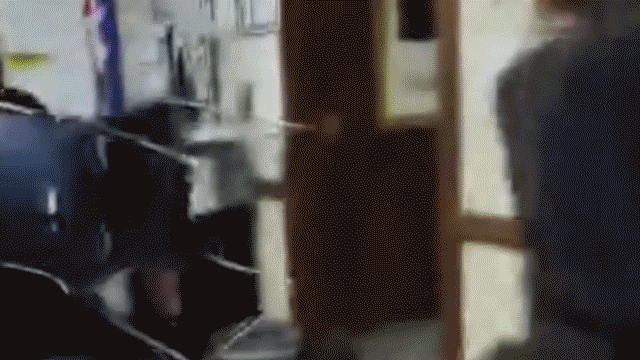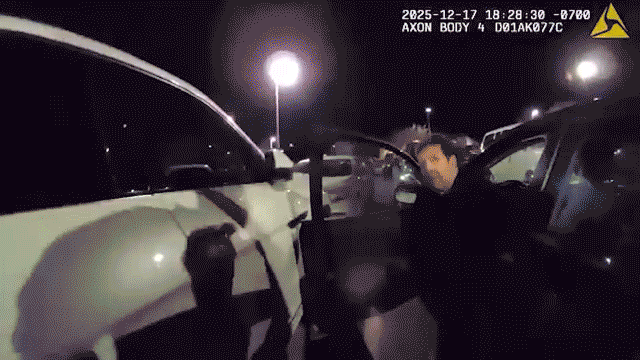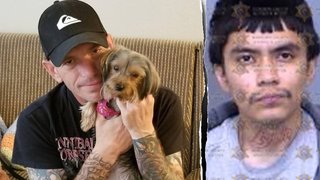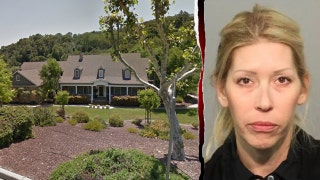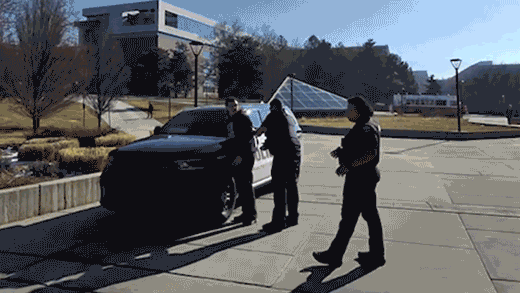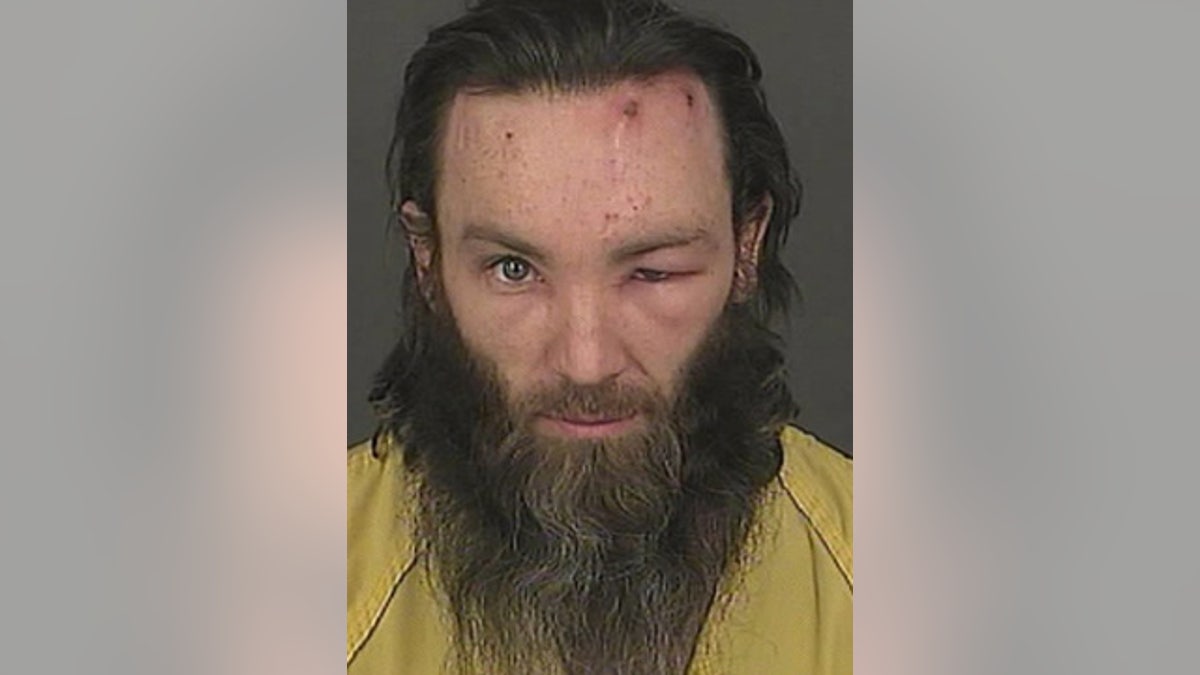
This undated photo shows Joshua Cummings, who is accused of murdering a Denver transit security officer on Feb. 1, 2017. (Denver Police Department)
DENVER – A Muslim man accused of killing a transit officer in Denver had previously been investigated after members of mosques in Texas and Colorado contacted authorities about his behavior.
Investigators interviewed Joshua Cummings, 37, in December after members of a Denver-area mosque reported concerns about him to federal authorities, a law enforcement official with knowledge of the investigation told The Associated Press. The official spoke on condition of anonymity because the official wasn't authorized to discuss the ongoing investigation. Before the Denver report, members of the Texas mosque from which Cummings was removed reported concerning behavior to the FBI, the official said.
Cummings is suspected of walking up behind guard Scott Von Lanken on a downtown corner Tuesday night as he spoke to two women, putting a gun to his neck and shooting him. Cummings is being held without bond on suspicion of murder and hasn't been charged yet. He is scheduled to make his first court appearance Friday morning. It's not clear if he has a lawyer yet.
A lawyer for a Denver mosque said Thursday that the mosque notified authorities about Cummings in December but did not want to be identified because of the sensitivity of the matter. The mosque wrote an email on Dec. 24 to federal officials about alarming statements Cummings made, said attorney Qusair Mohamedbhai.
Mohamedbhai released a redacted version of the email, sent to a Department of Homeland Security address, in which a leader reported that a man identifying himself only as "Joshua" and as a convert to Islam made worrisome statements during a Dec. 24 lunch and at an earlier event, including that he said it was OK to fight to establish the rule of Islam here.
"He seems pretty advanced in his path of radicalization," the leader wrote.
At an open house earlier in December, Joshua publicly rebuked a speaker "as being soft" on Shariah law, the letter said.
"After talking to him for some time, he agreed to meet with some Imams to clarify his thoughts," the person wrote. "I am hoping to arrange a meeting of one of the stronger/more knowledgeable Imams with him to see if he can be mellowed a bit. But I doubt it would help. He is not listening to reason."
The writer attached photos and a video of the man.
Mohamedbhai said the report highlighted an ongoing working relationship between law enforcement and the region's Muslim community. Federal law enforcement, he said, "took this alert very seriously" but did not know what actions were taken after the report.
The FBI declined to comment and the Department of Homeland Security didn't respond to a request for comment.
Denver police have not revealed a possible motive for the shooting or commented on how his alleged radicalization may have played a role in the shooting. Officials have said they were looking into whether Von Lanken, who was armed and wearing a dark blue uniform similar to those worn by police, could have been targeted because he was a member of law enforcement.
Cummings, an Army veteran who served from 1997 to 2002, had social media posts that included both messages hostile to and supportive of law enforcement. Last July, he tweeted that an Arizona police officer accused of brutality should be put to death for treason, but he published a post in September 2015 in support of police and the military in response to the murder of a police officer in his home.
The manager of a motel in the Denver suburb of Englewood where Cummings had stayed recently and also part of last year said Cummings was "always a positive guy" who volunteered to pay the rent for any tenants strapped for cash. Gary Kim said Cummings told him he was Muslim during long talks at the front desk or the small lobby at the Holiday Motel, recalling that Cummings did not want to give any negative connotations to the faith.
"He would say everyone should have a right to practice their religion as long as that religion isn't imputing on someone else's life," Kim said.
